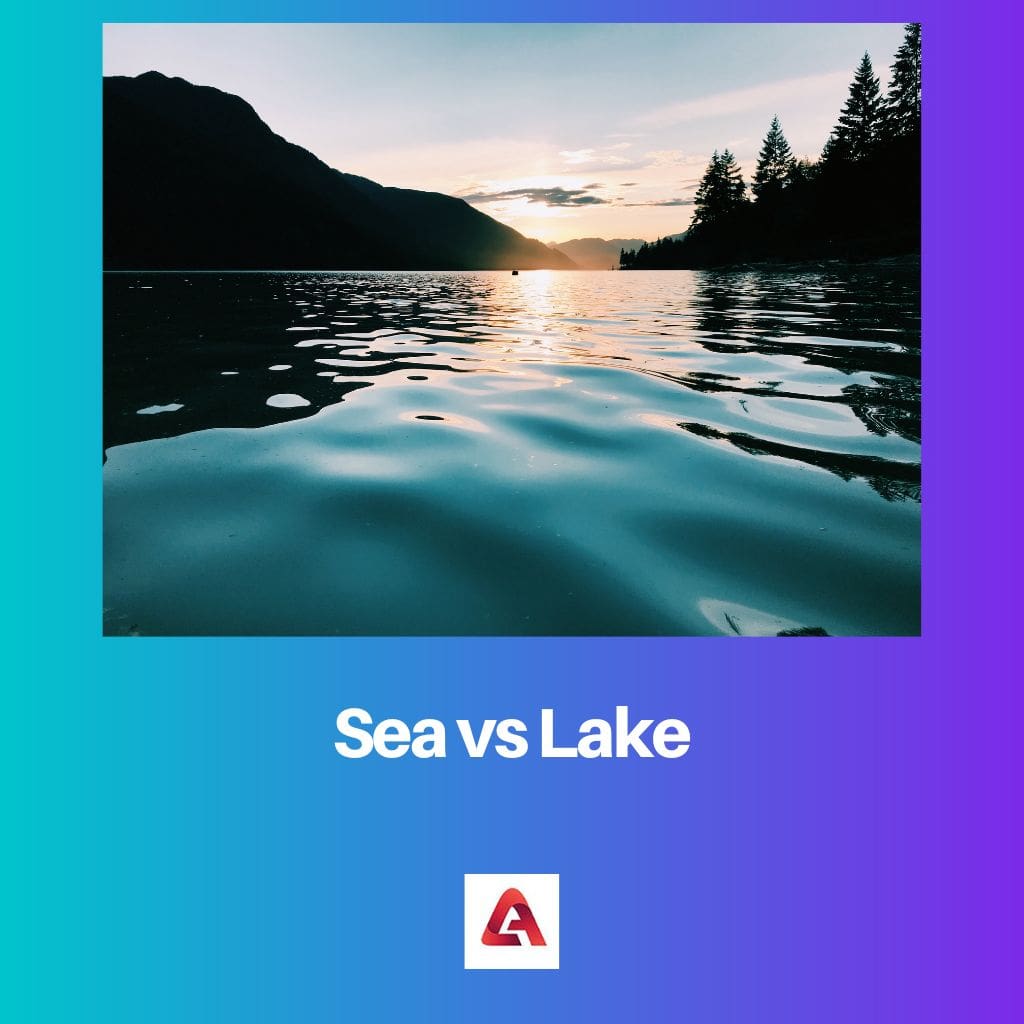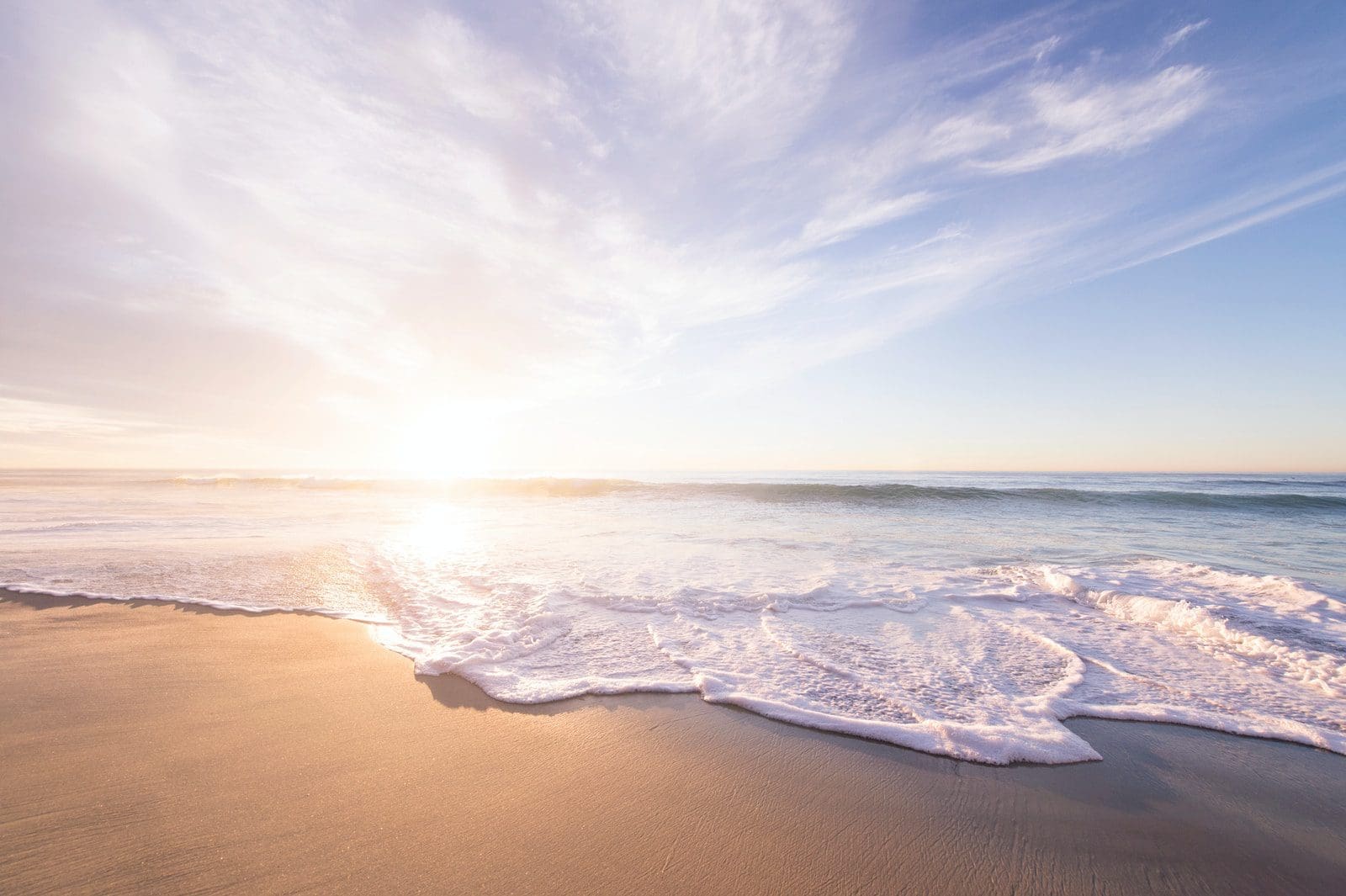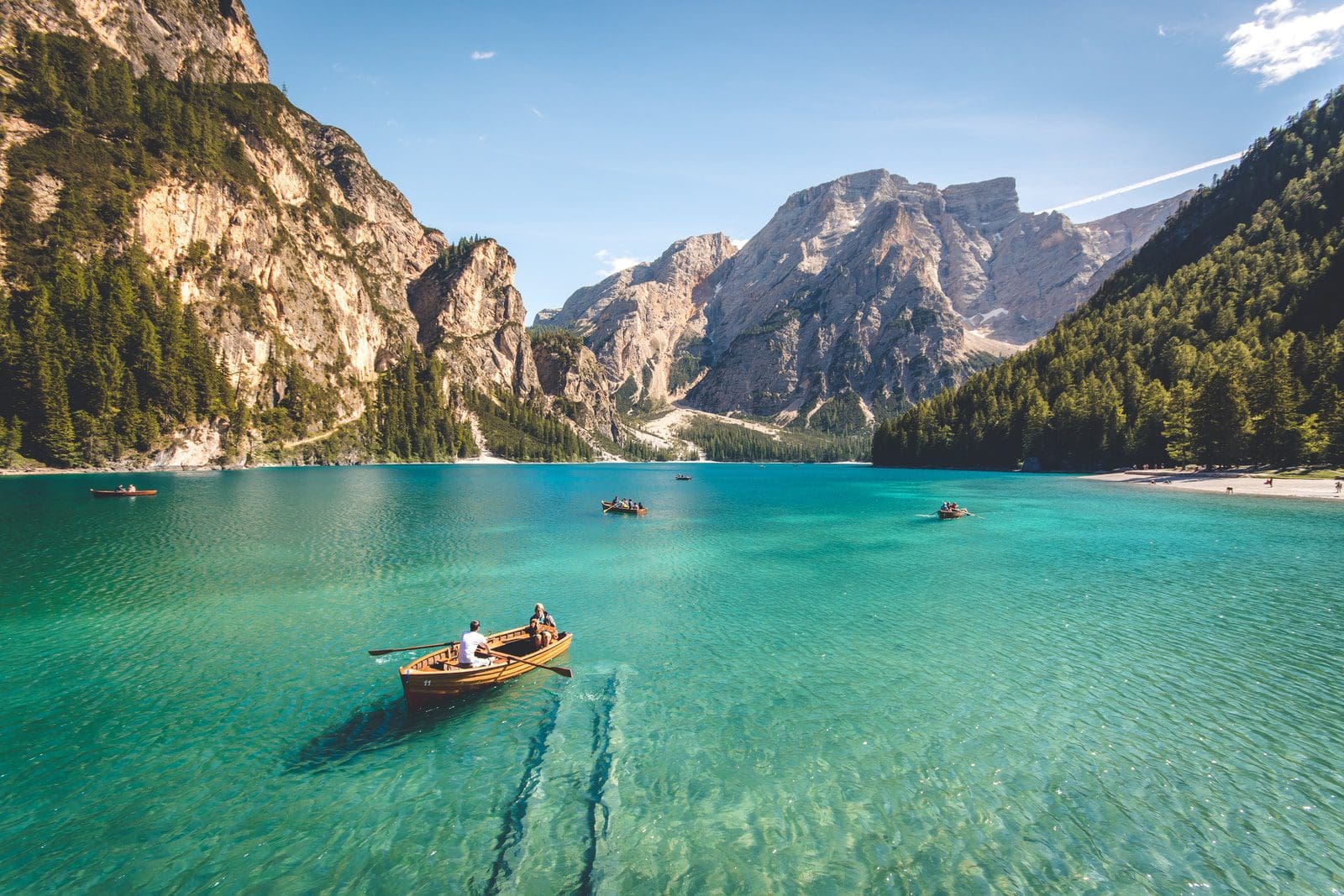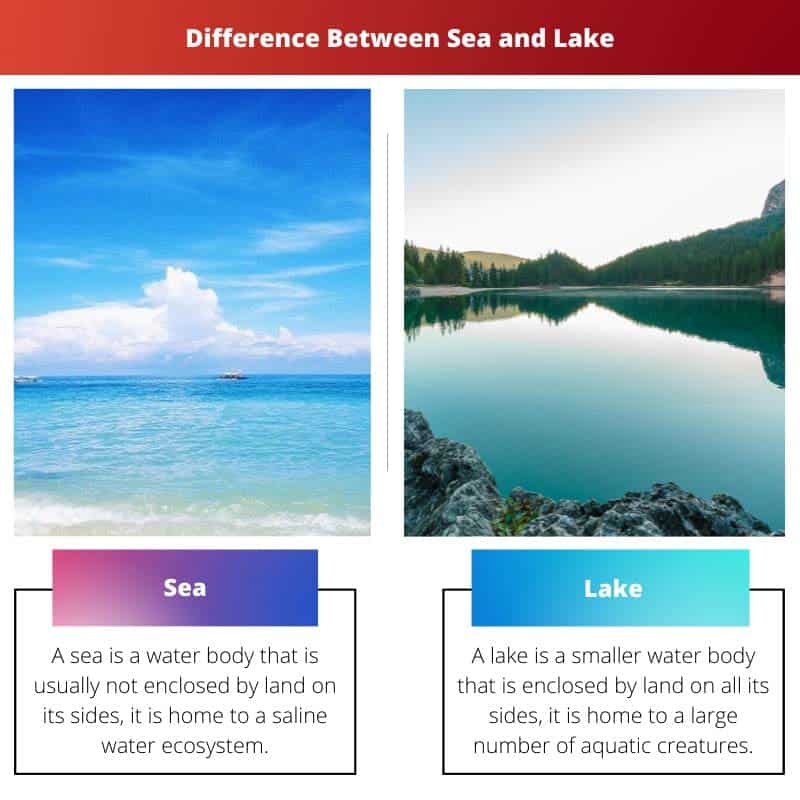For the times immortal, water has been an essential part of the survival of all living beings, whether animals, plants, or humans. Water is the key to life on our planet. Without the existence of water, any of the living beings can not survive.
Of all the areas of the planet Earth, about 71% is water.
Water is essential to survival in various kinds of water bodies. Some of the different types of water bodies are Oceans, Seas, Rivers, Lakes, Lagoon, Ponds, Reservoirs, etc., where oceans hold about 96.5% of the total water on Earth.
Key Takeaways
- Seas are large bodies of saltwater connected to oceans, while lakes are enclosed bodies of freshwater or brackish water.
- Lakes form in various geological settings, such as volcanic craters, glacial formations, and river basins, whereas seas result from the ocean extending into the land.
- Biodiversity in seas is higher than in lakes, with a greater variety of marine life and ecosystems.
Sea vs. Lake
A sea is a large body of saltwater connected to an ocean. They are much larger than lakes, as they are connected to an ocean and can span thousands of miles. Lake is a large body of freshwater that is surrounded by land. They are much smaller and range from just a few acres to several hundred square miles.

The two important water sources for human beings are seas and lakes. The sea is a large water body that holds much water and is deeper.
A sea is not enclosed by land on the sides. However, there exist some exceptions to this. There are seas present on the Earth that are landlocked.
Another important water body is a lake which is a landlocked water body. Lakes are moderate in size and are much shallower than the sea.
Comparison Table
| Parameter of Comparison | Sea | Lake |
|---|---|---|
| Definition | A sea is a water body not enclosed by land on its sides; it is home to a saline water ecosystem. | A lake is a smaller water body enclosed by land on all sides; it is home to many aquatic creatures. |
| Formation and ecosystem of the body | A sea is a naturally formed water body that provides a home to large saline water ecosystems. | A lake is natural or man-made, sometimes formed by separating from large water bodies. A lake is home to important aquatic ecosystems. |
| Size and depth | A sea is a large water body and has a greater depth. | A lake is much smaller as compared to a sea and is also shallower. |
| Type of water | A sea contains salty water. | A lake has either freshwater or saltwater. |
| Examples | Caribbean Sea, Bering Sea, Mediterranean Sea, The Sea of Japan, Andaman Sea, etc. | Pangong Tso Lake, Lake Baikal, Caspian Sea, Dead Sea, Lake Superior, Lake Erie, etc. |
What is the Sea?
A sea is a naturally formed water body and a perennial water source. A sea is a water body not surrounded by land on all sides.
A sea is a large and deep water body. It is a body that takes water to the oceans through bays or straits.
A sea is a home for many large ecosystems; these ecosystems involve thousands of organisms in it.
The seawater is salty to taste. The sea plays a significant role in maintaining the climate on Earth.
It also regulates the carbon and nitrogen cycles of Earth. However, overfishing and increased carbon dioxide levels have left the sea ecosystem drastically affected.
The sea also plays an important role in marine trade, power generation, mineral extraction, etc. They act as ports and dockyards.
Some examples of seas in the world are The Mediterranean Sea, The Caribbean Sea, The Sea of Japan, the Andaman Sea, the Baltic Sea, the Black Sea, etc.

What is Lake?
A lake is a reservoir that is either natural or man-made; it is either a perennial or temporary water source. It can be formed by separating from the large water body; therefore, they get their water from rivers and streams, and sometimes they get water from rainfalls.
A lake is small to moderate in size and is not deep. It is surrounded by land on all sides. A lake act as a home for a large number of fish ecosystems.
A lake has fresh water, but sometimes saltwater lakes can be found. A lake plays an important role in the nearby environment; it helps maintain the place’s temperature.
Some of the lakes were termed seas due to the limited knowledge in early times.
Many lakes are created for irrigation, hydroelectric power generation, domestic supply, etc. Some examples of lakes are Baikal Lake, Pangong Tso Lake, Caspian Sea, Dead Sea, Lake Superior, etc.

Main Differences Between a Sea and a Lake
- A sea is a water body not enclosed by land on all sides; on the other hand, a lake is enclosed by land on all sides.
- A sea is a naturally formed water body, while a lake is natural or man-made.
- A sea is a larger water body, while a lake is small to moderate.
- A sea is deeper, while a lake is shallower.
- A sea has salty water, while a lake has fresh or saltwater.
- A sea is home to large ecosystems that involve thousands of creatures and organisms, while a lake is home to ecosystems that mostly involve fish in large numbers.
- A sea has no subdivisions, while a lake is subdivided based on sources and formation.
- A sea is a water source for smaller water bodies; conversely, a lake sources water from large bodies.
- Seas are perennial water bodies, while lakes can be perennial or temporary.


I’ve never given much thought about the significance of lakes in terms of hydroelectric power generation. This was really enlightening.
The informational value of this post is definitely noteworthy, Watson.
Indeed, it’s interesting to learn about the various roles lakes play beyond being a water source.
The biodiversity of the marine life and ecosystems is indeed fascinating. This post has reminded me of the beauty of nature.
I totally agree, Owen. The marine life is incredibly diverse and we must appreciate and protect it.
The post does a great job of highlighting the distinctions between seas and lakes, making it easy for readers to understand the differences.
Absolutely, Hunt. The comparison table is particularly insightful.
The post’s comprehensive description of the formation, ecosystem, and significance of both seas and lakes is enriching.
I found this to be an insightful read, even if some parts were a bit too information-heavy.
Definitely, Sjames. The details about the comparison are incredibly educational.
I’m glad this post took the time to explain the essential role that water plays in our planet. We must take care of our water bodies and preserve our seas and lakes for future generations.
You’re right, Martin. Our water sources are important and we should protect them at all costs.
This post humorously reminds us that lakes were once termed as seas due to limited knowledge in early times. Very engaging read indeed.
I never looked at it that way, but it’s true. Understanding the context of information is enriching.
I agree, Ross. The historical perspective adds an interesting touch to the article.
While the information is important, I can’t shake off the feeling that the explanation is a bit too detailed. The key takeaways should be presented more succinctly.
I disagree, Yvette. The detailed comparison is what makes the article informative and educational.
This article should be a reminder for authorities to protect the seas and lakes from pollution, overfishing, and other activities that negatively impact their ecosystems.
Absolutely, Jjackson. It’s essential for us to enact policies that preserve our water bodies for the future.
I appreciate how the article provides a balanced view of the importance of both seas and lakes. It’s significant to understand these water bodies to maintain the ecological balance.
I couldn’t agree more, Ocox. It’s crucial for us to recognize and appreciate the value of all water sources.
The information provided about the significance of the sea in maintaining the Earth’s climate is really fascinating. I didn’t know how much impact the sea had on our environment.
I agree, Maria. The role of the sea in the Earth’s ecosystem is overlooked, so it’s great to see it emphasized here.